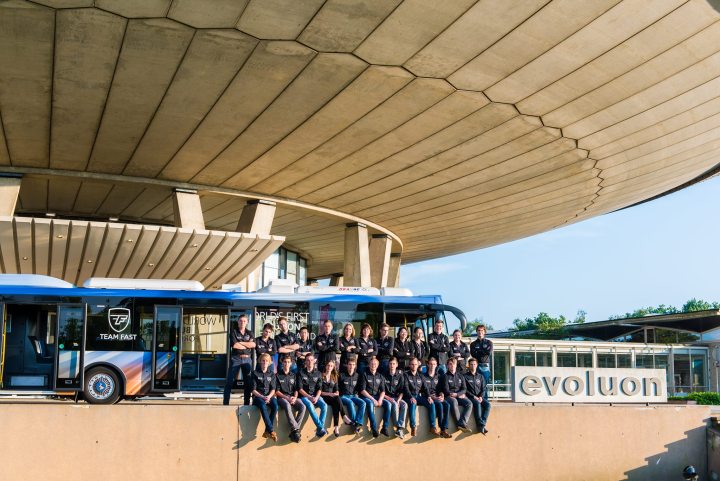
So why use formic acid? As per researchers at Eindhoven, the compound is sustainable, carbon neutral, safe, and liquid. The acid occurs naturally in stinging nettles and in some ants, but is also easily manufactured at the industrial level, where it is most often used to preserve livestock feed. The students at Eindhoven have employed a blend of 99 percent formic acid and a performance enhancing agent to create a fuel called Hydrozine, which purports to have four times the energy density as a battery. And it is this fuel that ultimately powers the bus.
After initially presenting a model of the bus at the beginning of last year, Team FAST has now created a system that is a whopping 42,000 stronger than originally planned, and able to produce 25kW of power. The key to the bus’ power actually lies in the trailer, which splits Hydrozine into hydrogen and carbon dioxide. The trailer behaves as a sort of range extender (which is why it’s been dubbed REX for short), allowing the bus to travel greater distances than it would be able to on its own. Currently, the team is completing final tests, and the formic acid-powered bus is expected to be operational by the end of 2017.
The bus is slated to be unveiled on Thursday, July 6, at which time the team is also expected to “look ahead to what these results will mean for the future.” Also anticipated in the grand debut is the first Hydrozine filling station.
“The mission of Team FAST is both admirable and ambitious,” said Eindhoven University. “Together with partners from the whole production chain, Team FAST is making Hydrozine a safe, sustainable and standard energy carrier for the future.”


